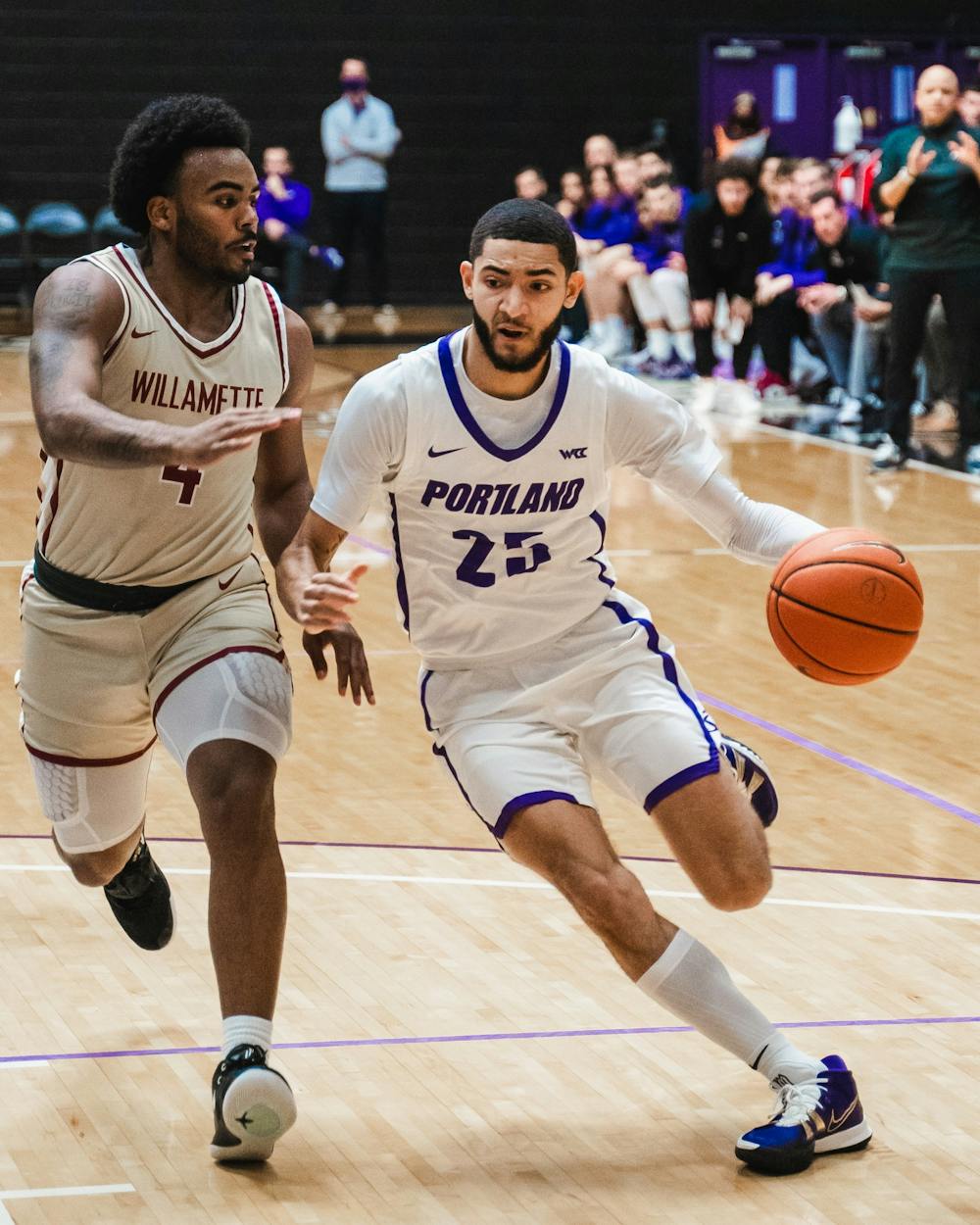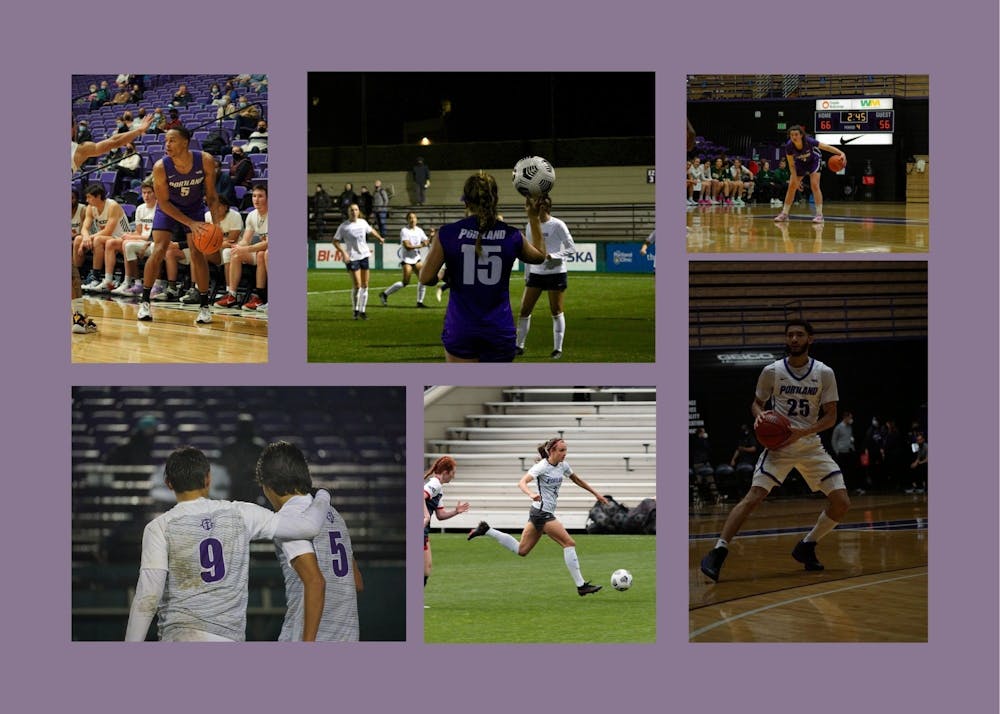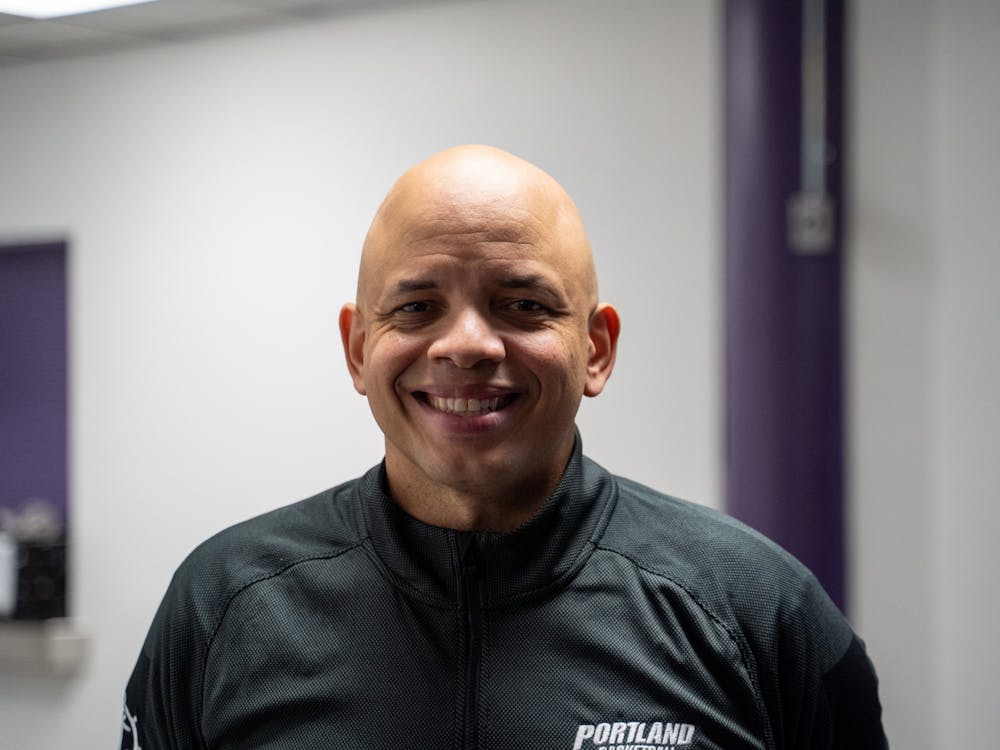A lot goes into finding the right player for a program. It’s not only stats and performance on the field or court, it’s how the player acts outside of the game as well.
Countless hours go into trying to find the right athlete for a program. Logan Emory, assistant coach for the women’s soccer team, was already in the car getting ready to travel to California to find talent when he spoke to The Beacon about recruiting.
“It never stops,” Emory said.
Outside of practice and preparation for training and games, a lot of time is spent looking for the next Pilot athlete, according to Emory.
Recruiting consists of a coach or coaches (in the case of women’s soccer all three coaches) go out and either attend a tournament, camp or simply a game of a prospective player. Chemistry is a huge aspect of this — will the player get on well with the preexisting team? Will they interact well with the community, the fans and the school? Will they contribute to the UP community? These are all parts of the puzzle that coaches have to piece together while observing different athletes.
Head coach of the men’s basketball team Shantay Legans looks at what classes they are taking, what clubs they participate in, and how they interact with their coach, friends and family. He listens to what teachers say about their students. An athlete can be an amazing player on the court, but if they don’t interact with those around them in a way that coach Legans wants to see then they may not be considered.
“We look for subtle things,” Legans said. “You look for if they work hard in AP classes. If you talk to their teachers, and counselors, they say how hard they work and you talk to their coaches, and they put in extra work, sometimes we look to see if they've done anything in the community, you know, food drives and stuff like that to see, because those are the kinds of things that we want to do when we're here.”
When Legans came to UP, he had the opportunity to build a relatively fresh team. He brought three players from Eastern Washington University, where he was previously coaching (Guard Mike Meadows, Guard/forward Tyler Robertson, and guard Jack Perry). He also brought in guard Chris Austin, who played for the same club team Legans used to play for. Finally, he looked for players who had the right character for the new program he was creating.

Both Legans and Emory talk about the hours on the road, from sleeping in parking lots before games to traveling as far as Europe and Australia. They are committed to finding the best players to come to Portland. They also keep track of local talent from as young as 14 years old, until they can reach out during the athlete’s junior year of high school.
Emory loves seeing the connections the coaching staff can make, and watching players become friends beyond the sport.
“I think (head coach Michelle French) does a really fantastic job of connecting with our recruits as people, rather than just soccer players,” Emory said.
The most rewarding piece for coaches is picking players who fit well with the team and the University they'll be calling home.
“I think that first day when you start to see them, spending time together and interacting together and you know that you've built this class of players that are going to be close friends for a long time and in some cases, lifelong friends,” Emory said.
“It's a long process that takes a lot of time and energy, but it's very, very rewarding,” Emory added.
Wilder Isom is a Sports Reporter for the Beacon. She can be reached at isomw24@up.edu.









